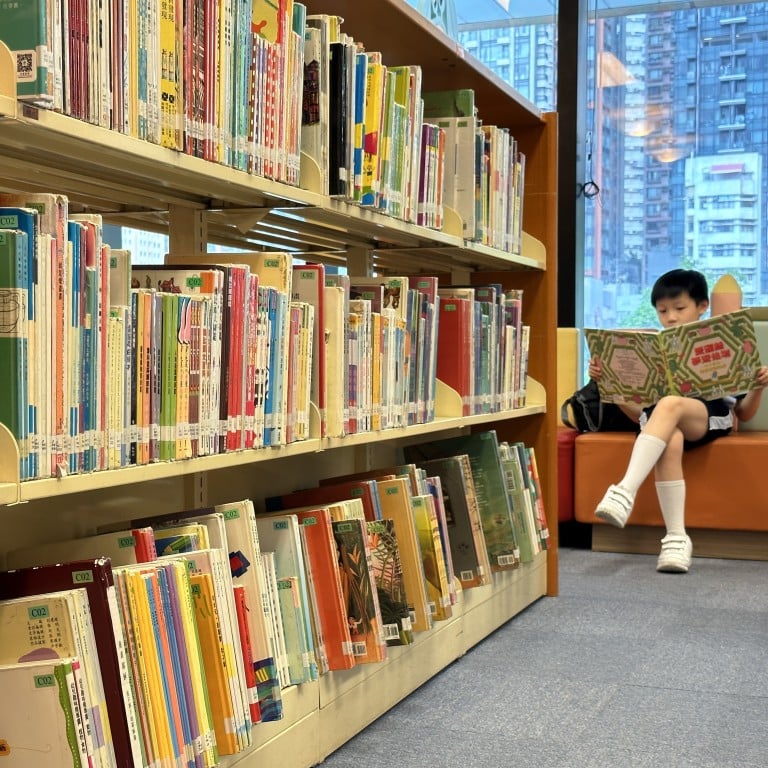
Letters | Why selling old books would be a win-win for libraries and readers
- Readers discuss the value of outdated books, the limits of AI detection tools, air con in winter, parking spaces, and the baby bonus
Outdated books can offer valuable insights into the historical context of their time. By selling them, public libraries can ensure the preservation of these artefacts while generating funds to support the acquisition of more relevant and up-to-date materials. The sale of these books would allow us to appreciate our cultural heritage and promote a sense of continuity between the past and the present.
Selling outdated books from public library collections would also provide an opportunity for community engagement. Libraries could organise book sales or auctions, attracting avid readers, collectors and enthusiasts who are keen on unique editions or rare finds. Such events would also promote a reading culture and lifelong learning.
Public libraries operate on limited budgets and shelf space. By selling outdated books, libraries can free up valuable space for new, relevant materials that align with the community’s changing needs and interests.
Revenue generated by book sales could help libraries overcome financial constraints. The capital can be reinvested in various initiatives, including the purchase of new books, upgrading technological resources, and organising educational programmes and events. This financial support would facilitate the sustainable development of public libraries.
The benefits of selling outdated books are far-reaching. Let’s embrace the value of these books and transform them into catalysts for knowledge, engagement and community enrichment.
Stanley Ip, Sai Wan Ho
University students should be prepared to coexist with AI
We acknowledge the necessity for AI detection tools to maintain academic integrity but we are wary of their current limitations and potential biases. Vanderbilt University’s decision to disable Turnitin’s AI detection tool underlines the urgent need for transparency and accuracy of this technology.
False positives unjustly penalise students, and without clear criteria for detection of AI-generated content, trust in these instruments will be eroded.
Furthermore, we are troubled by research suggesting non-native English speakers are disproportionately flagged, revealing a discriminatory facet that must be addressed.
In light of these challenges, we believe it is imperative for educators to reimagine what students study and how they are assessed.
The future calls for a synergy between human creativity and AI efficiency. Tasks should be designed to encourage collaboration with artificial intelligence, so students like us can enhance our thinking while leveraging AI to craft fluent writing. This will prepare us not only to coexist with AI but to excel in a world where human-AI collaboration is the norm.
Walter Long and Antony Chan, Kowloon Tong
The winter of our discomfort
A quick report from an MTR train on the afternoon of January 22: the weather has, as forecast, turned cold, yet trains and stations are blasting out air conditioning, wasting huge amounts of fuel and money to make customers thoroughly uncomfortable. Judging from my own recent experience, I’m sure the situation is just the same in cinemas, restaurants and so on. Can anyone explain this moronic phenomenon? I am baffled.
Warren Russell, Tseung Kwan O
More parking spaces needed
I am a resident of Yu Tai Court in Tung Chung. I need to drive to the airport to work every day.
Yu Tai Court has around 1,200 residential units. The estate offers only 77 car parking spaces and 11 motorcycle parking slots. This works out to a ratio of about 15 households to one car parking space.
According to the government’s revised Hong Kong Planning Standards and Guidelines, the parking ratio for subsidised housing has been increased to one space for every four to seven units.
There seems to be idle government land around Wong Lung Hang Road nearby. I hope the government will plan a car park there for transport convenience and community development, to complement the extension of the Tung Chung rail line.
Gregory Lee, Tung Chung
The baby bonus is no bonanza
Hong Kong’s total fertility rate has plunged to the lowest in the world, and the government is giving HK$20,000 (US$2,600) cash incentives to families with newborn babies.
The HK$20,000 baby bonus is not a bad idea, but it is clearly not enough. The government should also implement measures to improve education, housing and family-friendliness. For example, more childcare centres should be built to address the needs of working parents.
Emily Ng, Kwai Chung

